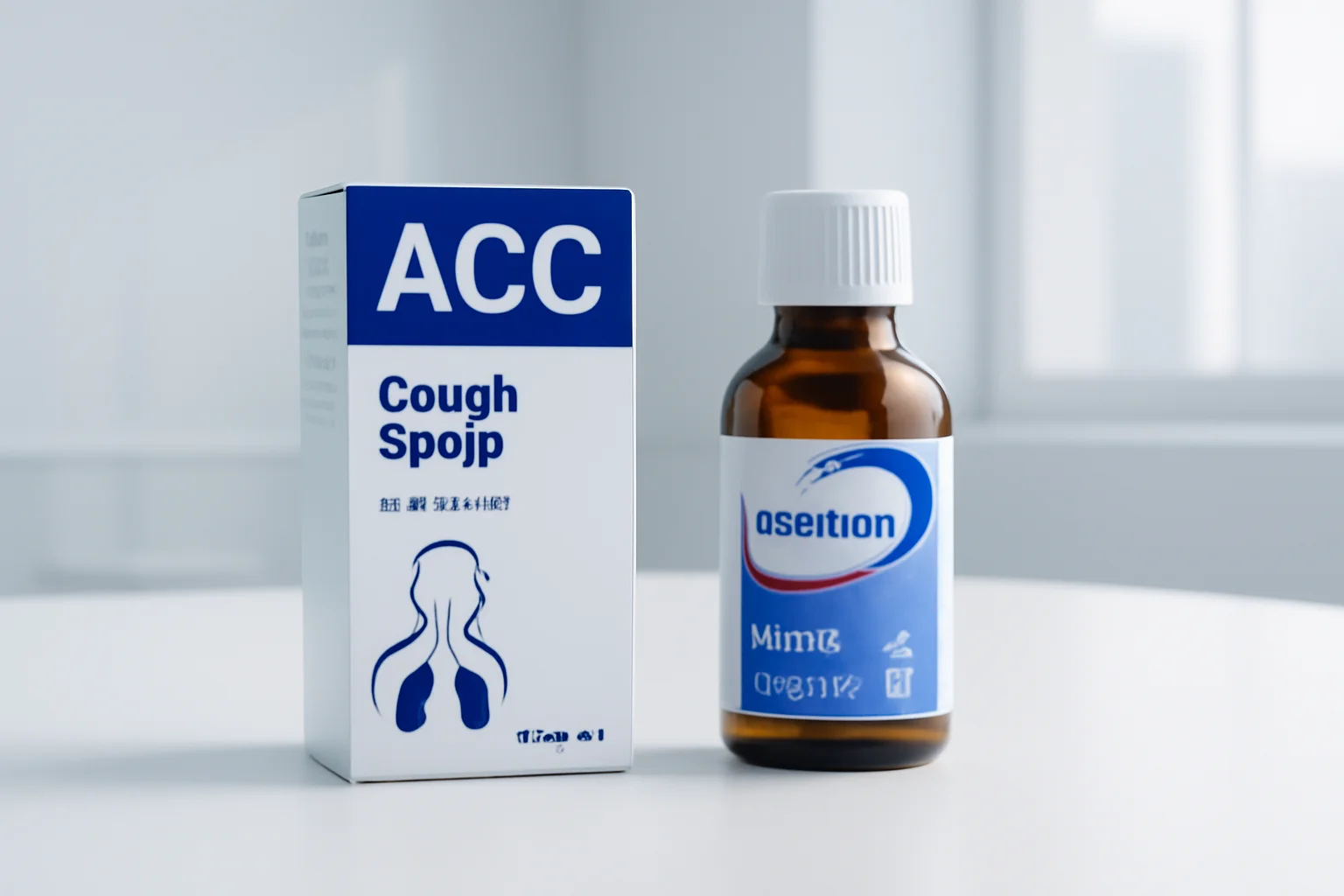
Acc or Mucosolvan: Which is the More Effective Cough Suppressant?
Respiratory diseases, such as colds or bronchitis, often affect us, especially during the cold months. These problems are usually accompanied by coughing and mucus production, making everyday life difficult. Coughing, as a reflex, helps to clear the airways, but when the mucus becomes too thick, breathing becomes more difficult, and coughing can also become painful. At this point, it is important to apply appropriate treatment methods that can help clear the airways and relieve coughing.
The Mechanism of Action and Use of ACC
ACC, also known as acetylcysteine, is a mucolytic agent that helps to thin mucus accumulated in the airways. This active ingredient reduces the viscosity of mucus, facilitating easier coughing and clearing of the airways. ACC is particularly useful in cases of chronic bronchitis, pneumonia, and other respiratory diseases where mucus accumulates.
ACC is available in tablet, powder, or syrup form, allowing everyone to find the most suitable method of application. Taking ACC is generally recommended when symptoms appear, but if someone suffers from a chronic respiratory disease, their doctor may often suggest regular, long-term use of the medication. The active ingredient is quickly absorbed in the body, so the effect can be felt relatively soon, which is especially important in cases of respiratory complaints.
It is important to note that ACC not only helps relieve coughing but also has antioxidant properties. This means it can contribute to protecting cells from the harmful effects of free radicals, which may be behind inflammation and respiratory diseases. Due to its antioxidant properties, ACC can play a role in strengthening not only the airways but also the entire immune system.
Some side effects may occur during the use of ACC, such as gastrointestinal disturbances, allergic reactions, or headaches. These are generally mild, but if someone experiences any unusual symptoms, it is important to consult a doctor.
The Benefits and Use of Mucosolvan
Mucosolvan, whose active ingredient is ambroxol, is also a mucolytic agent that serves to thin mucus and clear the airways. Ambroxol acts on the mucous membranes of the airways, stimulating mucus production, thereby aiding in the removal of thick mucus. Mucosolvan plays an important role not only in relieving coughing but also in preventing respiratory infections.
Mucosolvan is available in various forms, such as tablets, syrup, or inhalation solution. The inhalation form can be particularly effective, as it delivers the active ingredient directly to the airways, resulting in a quicker effect. When using Mucosolvan, patients are generally advised to increase their fluid intake, as this can help thin the mucus and make coughing easier.
The advantage of Mucosolvan is that it also has anti-inflammatory effects, which contribute to reducing irritation in the airways. Additionally, since ambroxol stimulates surfactant production, it can also help improve lung function, especially in cases of chronic respiratory diseases.
Although Mucosolvan is generally well tolerated, like all medications, it may have side effects. These can include gastrointestinal complaints, skin rashes, and allergic reactions. If someone experiences any unusual reactions while taking Mucosolvan, it is important to consult their doctor.
ACC and Mucosolvan: Which to Choose?
The choice of the appropriate medication depends on the specific symptoms and the individual condition of the patient. Both ACC and Mucosolvan can be effective in mucus thinning, but their mechanisms of action and effects may differ. ACC focuses more on thinning mucus and relieving coughing, while Mucosolvan contributes to airway health with its anti-inflammatory and mucosal protective effects.
If someone suffers from a chronic respiratory condition or if coughing persists for a long time, it is definitely advisable to consult a doctor, who can help select the most appropriate medication. The doctor will consider the patient’s medical history, other medications, and specific symptoms to provide the best possible treatment.
In addition, proper dosing of the medications is important. Both ACC and Mucosolvan have different dosing forms, so it is advisable to choose the method that is most suitable for the patient. During treatment, the patient should also pay attention to adequate fluid intake, which helps to thin and expel mucus.
In both medications, attention should also be paid to side effects. If any strange or unusual symptoms occur, treatment should be immediately suspended, and medical advice should be sought.
Note: The article does not constitute medical advice. Always consult your doctor for health problems!

